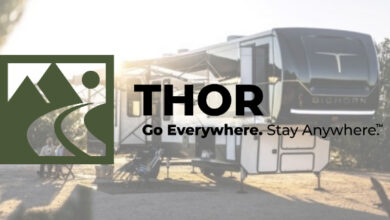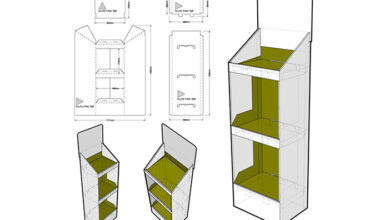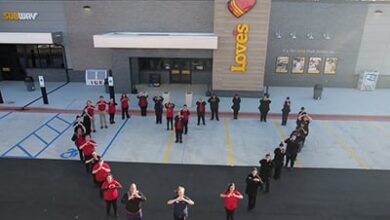The Make-or-Break Moment With Customers
Building trust is key to customer interactions – and sales.

Many RV dealerships in the United States have at least a general sales process they like their staff to follow when working with customers to help them sell more RVs. There are also a few who are highly committed to this process, who heavily train and practice on specific, sequential steps their sales staff must take with customers to increase the odds of success.
There are dealerships who have 10-14 written questions that must be asked to get the information they need to help a customer find the right product for them. A few have a step-by-step checklist they use, so sales staff are all following the same basic process. Others use a series of sequential “word tracks” that theoretically makes sense but doesn’t always work due to a lack of commitment by sales staff to practice them enough to not sound rehearsed or robotic.
In talking to and/or coaching salespeople across the country, there is one thing that appears to be missing from every sales process, training or general sales guidance that is out there: steps that establish rapport and trust with their customers. What often gets overlooked is the value that should be placed on helping customers feel comfortable first, before any other part of the process begins.
Too many dealerships miss the fact that most customers walk in a dealership with anxiety even before any salesperson interacts with them. Customers today are circling the wagons around their bank accounts, having a hard time making ends meet with soaring interest rates, high prices of food and fuel, and less savings than recent years, all resulting in less discretionary income than in the past. The instability in healthy living caused by COVID, the constant debate over vaccines, the environment and the crazy nature of politics are other things that cause customers to feel less comfortable and stable in recent years. Most of us have noticed that, in general, more people than ever are intolerant of each other and perceive anyone who doesn’t think like them as the enemy.
All of this has contributed to negative impacts on discretionary businesses who sell things like cars and RVs, leading salespeople to be even more aggressive to try to get a sale. This tends to make the average customer much more defensive and raises their antennas to watch out for salespeople who might not have their interests in mind. It also raises customer anxiety about the salesperson.
There seems to be a huge gap (that most dealerships miss) in the first few critical 7-10 minutes of customer interactions, when salespeople need to take more interpersonal steps to ease nervousness and help them feel comfortable before jumping into product discussions and sales procedures. Few dealerships actually understand and realize that achieving customer comfort is the first step toward the rapport and trust customers MUST have (with the salesperson) before they take out their credit card in these uneasy economic times.
The failure rate of salespeople (not just in the RV industry, but in all industries) is very high, yet no one seems to be able to figure out that long before customers were customers, they were people. For most, trust isn’t automatic and doesn’t come easily. So many times I have seen salespeople who are highly qualified with extensive product knowledge, work for 3-5 hours with a customer finding the perfect RV, only to have them leave at the end and say they “want to go home and think about it.” Why? It’s because they weren’t sure they trusted the salesperson.
There is typically little or no company training on the steps and skills needed to build a rapport with customers in the first 7-10 minutes. In addition, companies all too often gauge the quality of their salespeople’s interpersonal skills only in the job interview to determine if they have the chops work with customers – and then it stops right there.
So, what do we do about this? With a lack of company emphasis and training, salespeople must take it upon themselves to hone their rapport-building skills in the initial stages of customer interactions. Here are some steps that can be taken immediately that can help right now.
Be a Person Before a Salesperson
Set your strong goal to sell something aside for a few minutes. Customers will have their antennas up looking for the over-aggressive salesperson to scare them away, and that’s just what will happen if you skip trust-building steps. Greet them exactly like you would meeting someone on the way to becoming a new friend. Be genuine, curious and truly happy to see them, and show it.
Slow Customers Down
In the first few minutes, customers are anxious to bust through the back door and “just go out and look” at everything in the lot. For most, that’s just ‘cover’ because they are afraid of who you might be. They really do want to get to know you, so they can decide if they can trust you before they decide to buy from you. They just won’t admit it – yet. Also, though customers do more research than ever before they visit a dealership, they do realize that they need you to help them make the best decision on an RV.
Stop Talking & Listen
I have always felt that contrary to popular belief, introverts often make the best salespeople, because extroverts talk way too much. They tend to yak-yak-yak their way right out of a sale. They tend spend more time talking than listening and don’t find out important information they need from the customer to proceed in a way to best help them.
Be an Active Listener
It’s one thing to listen, yet another to build rapport from listening. Build open communications by asking follow-up questions based only on what customers just said. This allows them to expand their thinking and feel more comfortable talking and the more they talk, the more information you get – not just product-based, but information about how they prefer you to approach them, demonstrate product to them and generally work with them. Making short notes about important facts will also help, especially with follow up questions later.
Ask Customers How You Can Work With Them
All customers have a preferred way they want salespeople to work with them, and they typically like salespeople who are like them. If you can’t figure out your customer’s type and make adjustments in your approach to accommodate that, ask them how they prefer you to work with them. Nearly all of them have had a bad experience with a salesperson before and at least will know what they don’t want, and won’t be shy about telling you that.
Answer Every Question Immediately
If a customer asks any question in the first few minutes that you can’t answer (no matter how small), stop and get the answer immediately. This builds a sense of urgency that they perceive as respect for them and also in your follow-through, which is the single best trust building power tool you can have. Having great follow through is the quickest way to earn (but also lose) a customer’s rapport and trust.
Too many salespeople don’t have the confidence to say “I don’t know” if they really don’t know the answer to a customer question. I have had customers say they bought from me precisely because when I didn’t know an answer to the question, I didn’t make one up, but I immediately found a resource who could answer it for them.
Being able to get your customer an answer or get the answer to every one of their questions builds credibility that leads to trust. Once that is in place, everything you say after that will be taken more seriously because they trust you.
In conclusion, once these things are in place, only then can you proceed to try to find them the right product that matches what they want, how they will use it and their budget. Taking the 7-10 minutes to establish these things in the early stages of the first meeting will be time well spent that goes a long way toward the comfort, rapport and trust they must have to buy from you 2-4 hours later.
Even if they don’t buy that day, “no” doesn’t always mean no…it means “not right now,” and they will come back to you rather than going to your competitor, because they trust you.



